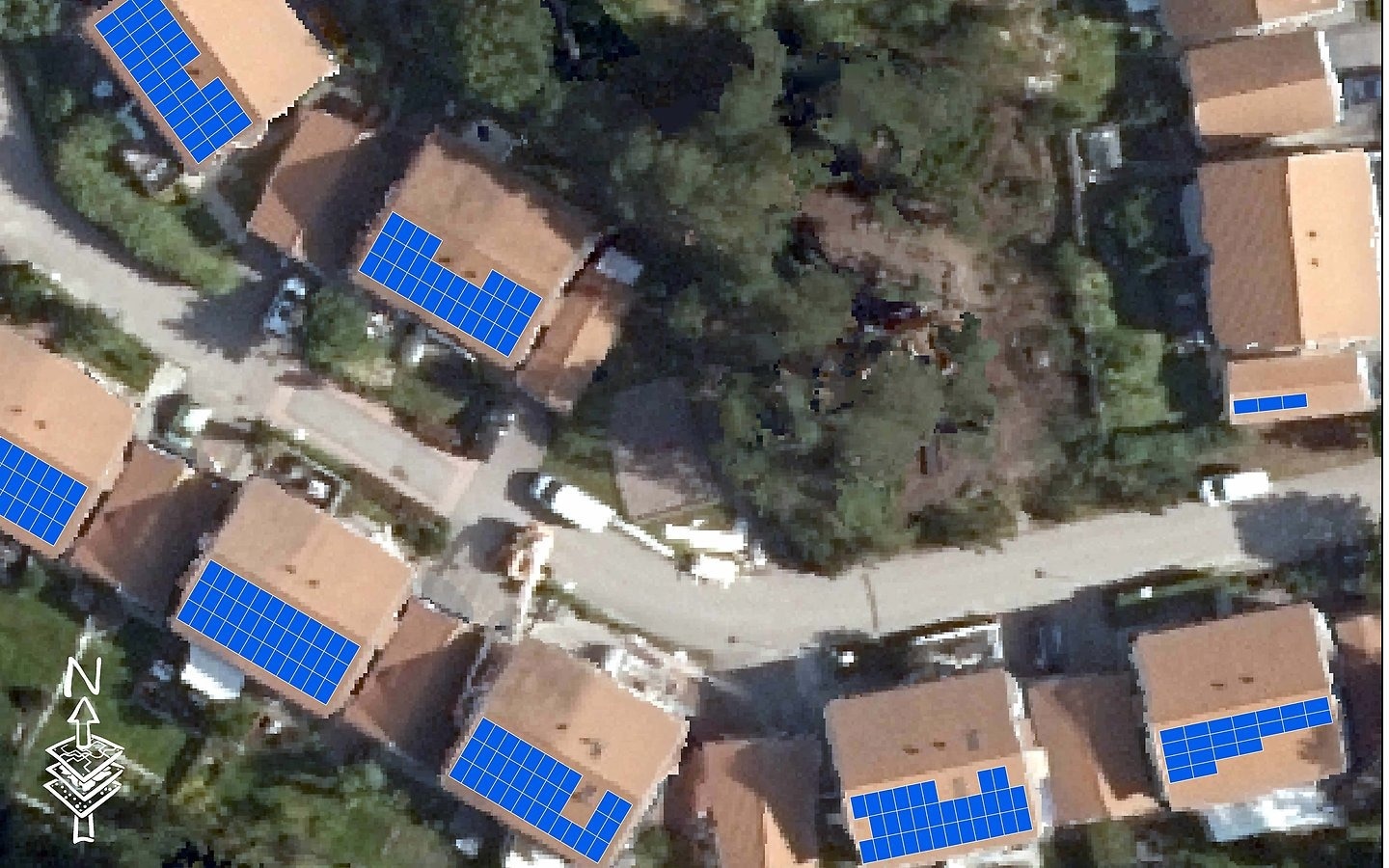Rooftop solar panels can use less energy if they are installed properly. The University of Gävle’s Mohammad Aslani, a researcher in geographic information science, has created AI techniques that advance the positioning of rooftop solar panels in a number of ways.
 “Within the framework of Mohammad Aslani’s doctoral thesis, Aslani and Stefan Seipel, professor in computer science, have developed AI methods which can be used in a process containing several steps to assess the potential of rooftop solar panels.” Image Credit: Lantmäteriet/HiG
“Within the framework of Mohammad Aslani’s doctoral thesis, Aslani and Stefan Seipel, professor in computer science, have developed AI methods which can be used in a process containing several steps to assess the potential of rooftop solar panels.” Image Credit: Lantmäteriet/HiG
It can be challenging to estimate how much electricity rooftop solar panels can generate. Solar panels for a home can be a wise investment for individual homeowners. Choosing how many panels to install and where to place them will determine how much electricity can be generated on the roof.
Too many solar panels on the roof generates a surplus of electricity, but it does not give the owner a lot of money when it is sold on the marked. Too few solar panels, however, does not generate enough electricity in relation to the total cost of investment. Solar panels are expensive, so we need to find a balance to make the investment as profitable as possible for the consumer.
Mohammad Aslani, Ph.D., Researcher, Geographic Information Science, University of Gävle
Aslani and computer science professor Stefan Seipel have created AI techniques that can be applied in a multi-step process to evaluate the potential of rooftop solar panels as part of Aslani’s doctoral thesis. Both on a micro and macro level, for urban planners and real estate firms as well as for specific homeowners, these techniques can be helpful.
Aslani added, “This research is useful as a basis for decision making. If an urban planner wants to assess the potential in solar energy for an entire neighborhood, it is crucial that the assessment is as accurate as possible, both for financial and environmental reasons.”
The AI engine can, in the first step, recognize every roof in an image of a neighborhood by using publicly accessible cadastral maps, aerial photos, and point target data. It then evaluates the roofs’ orientation and pitch in the following stage. The third step takes into account each roof’s structure, including angles and chimneys.
Finally, it recommends how many solar panels should be installed on each roof and where they should be placed for maximum effectiveness. Six different AI engines are used in total, two for each of the three steps of the process described above.
The new AI methods outperformed older ones in two case studies, one in Uppsala and one in Gothenburg.
The next stage of Mohammad Aslanis’ research is to create an AI that will take into account a building’s energy needs when determining how many solar panels to install.
Aslani concluded, “I would also like to turn our thinking around and instead do research on how to build buildings and roofs to get the most out of solar panels.”
Journal References:
Mohammad, A. (2022) Computational and spatial analyses of rooftops for urban solar energy planning. https://www.diva-portal.org/smash/record.jsf?pid=diva2%3A1688644&dswid=-9159
Mohammad, A., et al. (2022) A Spatially Detailed Approach to the Assessment of Rooftop Solar Energy Potential based on LiDAR Data. In Proceedings of the 8th International Conference on Geographical Information Systems Theory, Applications and Management - GISTAM. doi:10.5220/0011108300003185
Mohammad, A., et al. (2022) A fast instance selection method for support vector machines in building extraction. Applied Soft Computing. doi:10.1016/j.asoc.2020.106716
Mohammad, A., et al. (2022) Efficient and decision boundary aware instance selection for support vector machines. Information Sciences. doi:10.1016/j.ins.2021.07.015